“Without prolonged moments of adoration, of prayerful encounter with the word, of sincere conversation with the Lord, our work easily becomes meaningless…the prayerful reading of God’s word and the perpetual adoration of the Eucharist are growing at every level of ecclesial life.”
– Pope Francis, Evangelii Gaudium (2013)
What is the importance of Eucharistic Adoration?
Eucharistic adoration is a blessed and prayerful encounter with Jesus Christ, who is truly present to us under the appearance of bread and wine. The consecrated Host, blessed and offered during Mass, is shown forth by a vessel called a monstrance – from the Latin meaning “to show” – and presented to us for our worship and adoration. Jesus told his apostles, “Behold, I am with you always, to the close of the age (Mt 28:20).” We are reminded that He is indeed near to His people, present in all the tabernacles of the world.
What is proper etiquette during Eucharistic Adoration?
When we are not taking part in vocal prayers and hymns with other adorers, we should be praying silently. Whenever we pass before the place where the sacred Host is reserved, we should genuflect. We should observe the modest dress and decorum that are appropriate to every solemn occasion and avoid any actions that might disturb or distract others or draw attention to ourselves rather than Jesus.
How should we pray during Eucharistic Adoration?
There are many ways to pray. We may meditate silently by gazing on the sacred Host. We may silently speak to Jesus from our minds and hearts. We may also rely on devotions and prayers from Catholic tradition, such as the reading of Scripture, praying the Rosary, or the litanies.
Exposition
O Salutáris Hóstia
O salutaris Hostia,
Quae caeli pandis óstium:
Bella premunt hostília,
Da robur, fer auxilium.
Uni trinóque Dómino
Sit sempitérna glória, Sensuum deféctui.
Qui vitam sine término
Nobis donet in pátria.
Amen.
Benediction
Tantum Ergo
Tantum ergo Sacraméntum
Venerémur cérnui:
Et antíquum documéntum
Novo cedat rítui:
Praester fides suppleméntum
Sensuum deféctui.
Genitóri, Genitóque
Laus et jubilátio,
Salus, honor virtus quoque
Sit et benedíctio:
Procedénti ab utróque
Compar sit laudátio.
Amen.
Minister: You have given them bread from heaven.
Response: Having all sweetness within it.
Minister: Let us pray.
Lord Jesus Christ, you gave us the Eucharist as the memorial of your suffering and death.
May our worship of this sacrament of your body and blood, help us to experience the salvation won for us, and the peace of the kingdom, where you live with the Father and the Holy Spirit, one God, forever and ever.
Amen.
The celebrant then blesses all present with the Eucharist in the monstrance or ciborium by making a Sign of the Cross. All respond by making a Sign of the Cross, in silence.
After reposition The Divine Praises may be said:
Blessed be God.
Blessed be his Holy Name.
Blessed be Jesus Christ, true God and true man.
Blessed be the Name of Jesus.
Blessed be his Most Sacred Heart.
Blessed be his Most Precious Blood.
Blessed be Jesus in the Most Holy Sacrament of the Altar.
Blessed be the Holy Spirit, the Paraclete.
Blessed be the great Mother of God, Mary most holy.
Blessed be her holy and Immaculate Conception.
Blessed be her glorious Assumption.
Blessed be the name of Mary, Virgin and Mother.
Blessed be St. Joseph, her most chaste spouse.
Blessed be God in his angels and in his Saints.
Amen
Blessed Be God






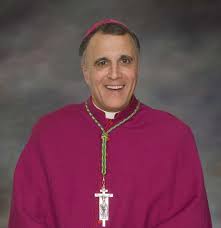


 Kimberly Kay Cox
Kimberly Kay Cox







 Mark Mogilka
Mark Mogilka




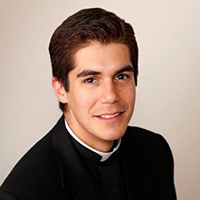
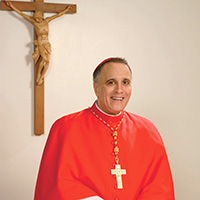








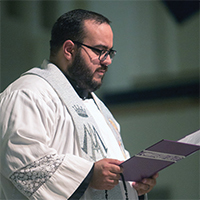



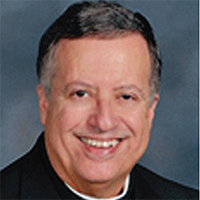

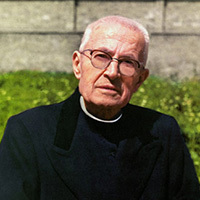




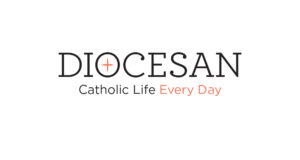



 Armando Cervantes
Armando Cervantes Anna Betancourt
Anna Betancourt
 Andrea Chavez-Kopp
Andrea Chavez-Kopp